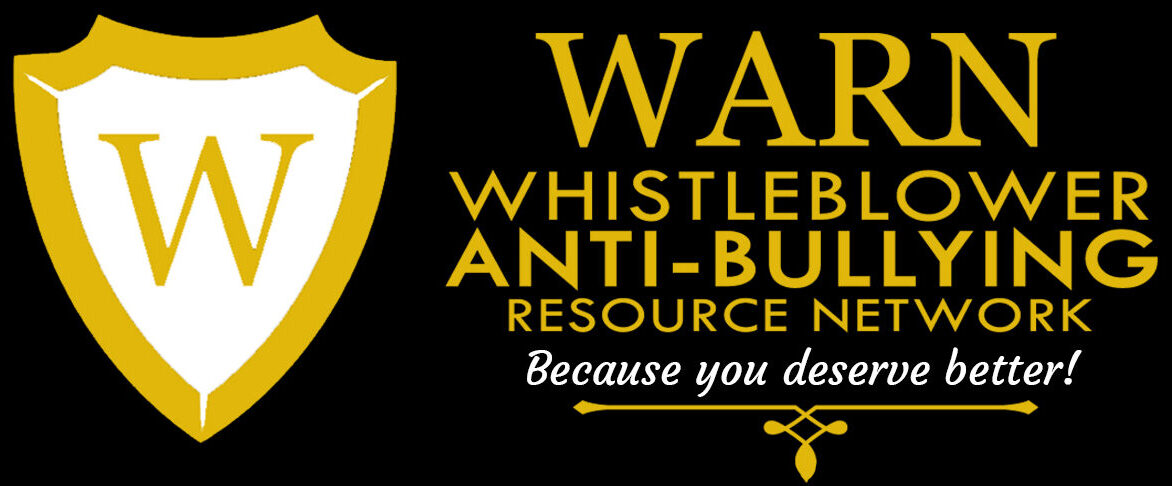From The Daily Progress – Charlottesville, Virginia
With the current national — indeed international — media frenzy surrounding the White House and apparent whistleblowers, I will try to shed a little light on the whistleblower concept while delicately avoiding political landmines.
What are my qualifications to speak to this issue? I am a whistleblower myself. I formerly served as the first program manager for the Anti-Harassment Unit at the U.S. Department of Homeland Security headquarters in Washington.
I then was asked (cajoled, really) to engage in conduct that I found to be inconsistent with both my oath as a public servant and my personal honor. I vehemently refused management’s request, and I subsequently reported the matter to Congress.
Like many whistleblowers in the public and private sectors, I suffered fierce retaliation, bullying and harassment.
Yet unlike many whistleblowers, I fought back legally and prevailed to my full satisfaction. I subsequently authored a book sharing my experience as a whistleblower and rendered insights on how one might combat workplace bullying, harassment and retaliation — whether or not one is a whistleblower in the conventional sense.
Despite public rhetoric in some circles branding a whistleblower as a “traitor” or “spy,” whistleblowers do not deserve such nefarious labels. Indeed, whistleblowers are a unique breed of honorable men and women who value service above self, and whose staunch commitment to serving the public good often places them at risk of losing their employment, health and even families. The whistleblower will certainly lose his or her “friends,” as people run and hide in fear rather than stand by the person they once called friend.
Nevertheless, the whistleblower stands tall because he or she feels compelled to do the right thing. This is not at all a new concept. Honoring and providing protection for whistleblowers has a long history in the U.S.
The true whistleblower — as opposed to someone whose sole agenda is to cause public embarrassment to another — is the noblest of souls. Think about it this way: As a hardworking taxpayer, would you want to see your tax dollars subjected to fraud, waste or abuse at the sole discretion of public officials who have no fear of accountability?
In the private sector, would you want your loved one to drive away from a garage with shoddy brakes because the company placed profit over safety, with no fear of accountability? Would you want a pharmaceutical company to issue a loved one unsafe drugs, having bribed health inspectors to write fraudulent reports with no fear of accountability?
And what of your children? It is a sad fact that institutions designed to educate or provide spiritual guidance have harbored officials who would prey on innocent children. Among the fearful and silent adults, who would hold the child molesters accountable for their crimes?
Enter the whistleblower. This is the man or woman whom fraudsters fear will keep them accountable to the public. To the people. To the rule of law.
And so, as you wade through the political tsunami these days surrounding a possible whistleblower, there will of course be those who will vilify whistleblowers and, conversely, those who will elevate whistleblowers to sainthood. In the existing political climate, whether the whistleblower is feared or revered may very well come down to one’s political agenda.
In truth, the legitimate whistleblower is neither a saint nor a villain. This is simply a man or a woman who, notwithstanding inherent human flaws, believes in doing what is right for the common good.
It’s not about politics — liberal or conservative. It’s about honor and courage — hopefully not obsolete principles.
References:
